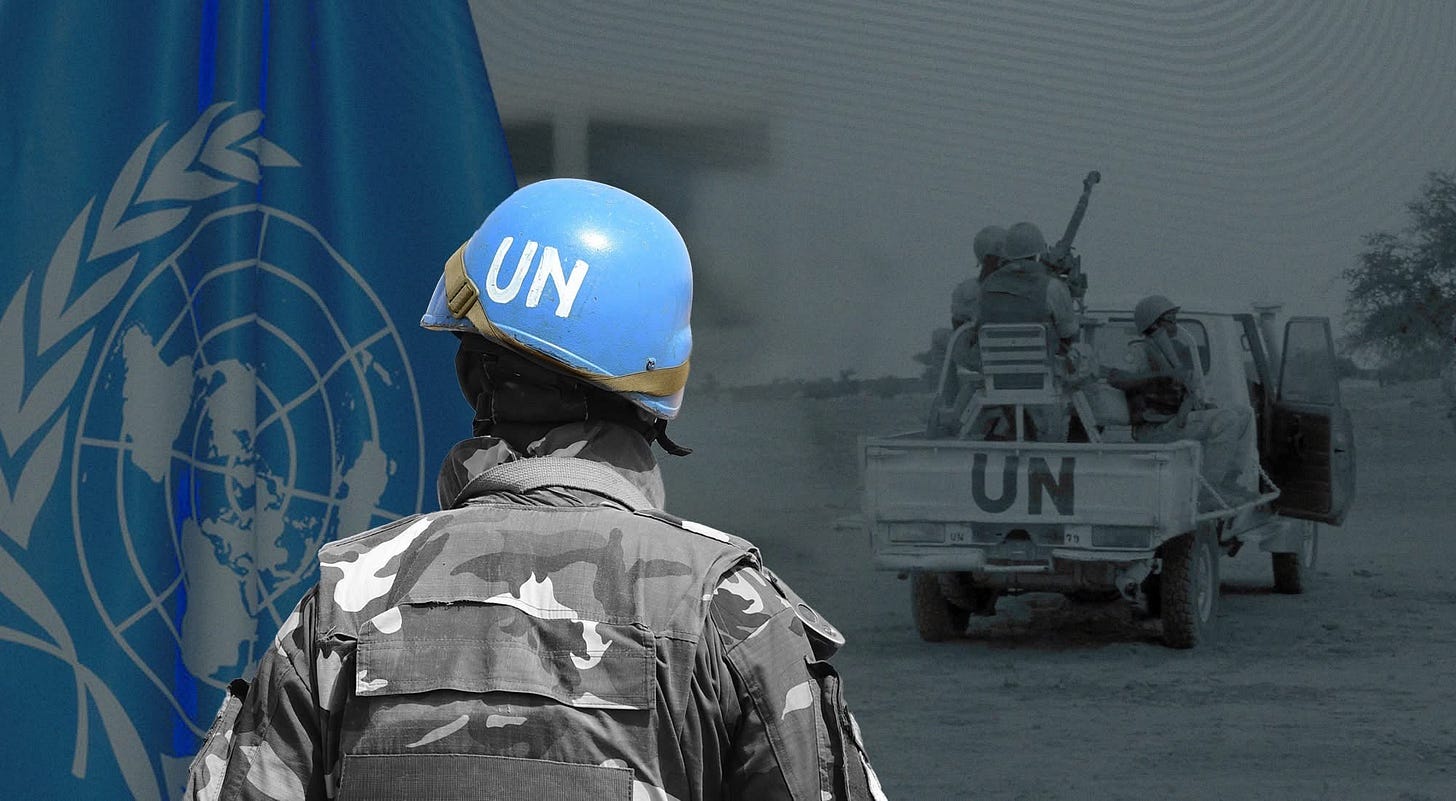The UN may soon include Israel in the list of countries accused of sexual violence. I will not explain today why the likelihood of finding evidence is close to zero, but will instead focus on something else: for decades, the UN — a symbol of international law and humanitarian missions — has hidden the dark side of its own peacekeepers.
This concerns thousands of cases of sexual violence committed by its own staff — people officially deployed to protect civilian populations. Under the “blue helmets” there have been gang rapes, child exploitation, the running of brothels, and participation in transnational trafficking of women. These crimes only became widely known after an Associated Press investigation and a report by Nikki Haley at the UN.
Geography of the Crimes
Haiti: Children Trapped by Peacekeepers
Between 2004 and 2007 in Haiti, at least 134 Sri Lankan peacekeepers ran a sex ring involving children, with no fewer than nine victims. Incident reports revealed that both girls and boys, some as young as 12, were exploited.
“I didn’t even have breasts yet,” testified one anonymous girl. She told UN investigators that from ages 12 to 15 she was raped by more than 40 peacekeepers, including a man known as “the Commander,” who paid her 75 cents. She said that throughout those years she slept with them in UN vehicles parked inside the base.
According to the Associated Press, which broke the story, the children were lured with candy and money.
Central African Republic: “They Came to Protect”
In 2014–2015, about 98 girls in the Central African Republic accused peacekeepers from Burundi and Gabon of sexual abuse. Investigators identified 41 suspects, but all were simply repatriated.
Journalists from Le Monde and The New Humanitarian revealed that the scale of the tragedy was far greater. From 2014 to 2023, hundreds of incidents were documented, including gang rapes.
A 20-year-old named Luna and her sister said they were raped in turn by six soldiers. A 28-year-old woman named Grace recalled how four peacekeepers got her drunk and raped her, afterward blaming her for “provocation.”
Victims frequently faced indifference and intimidation from the UN, including threats when they tried to report abuses.
Cambodia and UNTAC
In the 1990s, the UN mission in Cambodia (UNTAC) led to a sharp rise in child prostitution:
The number of people involved in prostitution rose from 6,000 to over 25,000 in just two years.
Women and girls were forced into prostitution, kept in horrific conditions, and some were raped as a means of control.
Children born to peacekeepers were stigmatized as outsiders due to their different skin tone.
Former Mozambican First Lady Graça Machel noted that in six out of twelve countries studied, the arrival of peacekeeping forces immediately coincided with a rise in child prostitution.
The Balkans and Sierra Leone
In Bosnia and Sierra Leone, peacekeepers visited brothels where women and girls were held, many of them brought in through human trafficking networks. International reports stressed that such large-scale trafficking would not have been possible without the protection of military personnel.
Scale and Data
In 2015, the UN began disclosing more data on thousands of allegations of forced sex with peacekeepers in exchange for aid, hundreds of which involved minors.
The Associated Press found that in the 12 years up to 2017, nearly 2,000 allegations of sexual abuse and exploitation had been lodged against UN peacekeepers and staff worldwide.
In 2004, Amnesty International reported on the abduction and forced prostitution of underage girls in Kosovo, with UN personnel fueling demand.
The UN Department of Peacekeeping Operations itself admitted: “Peacekeepers came to be seen as part of the trafficking problem, not as the solution.”
The UNTAC mission in Cambodia triggered outbreaks of HIV/AIDS and other STDs among women and girls. In response, the UN distributed more than 800,000 condoms.
How the UN Responded
Formally, the organization adheres to a policy of “zero tolerance.” Training programs have been created, a Victims’ Rights Advocate appointed, and a victim assistance fund established.
But in practice, the reality is quite different:
Sabotaging investigations. The 2014 CAR scandal only came to light because of a leak; inside the organization, the whistleblower was punished, not the perpetrators.
Silence and repatriation. Suspects are merely sent home. They are supposed to be prosecuted in their country of origin — but this almost never happens.
Immunity. Peacekeepers are shielded from local laws, leaving victims without justice.
Accountability
A handful of cases have gone to trial. In the vast majority — no convictions, no compensation. More than 500 paternity claims remain stuck in bureaucratic limbo.
Epilogue
The mission of the UN “blue helmets” — its peacekeeping forces — is supposed to be the maintenance of international peace and security, the development of friendly relations among nations, cooperation in solving global problems, and the protection of human rights, while coordinating actions between states. These forces, composed of soldiers from national armies, are deployed under UN command to prevent or end threats to peace, often in conflict zones.
But this leaves us with the question: who will judge the judges?


